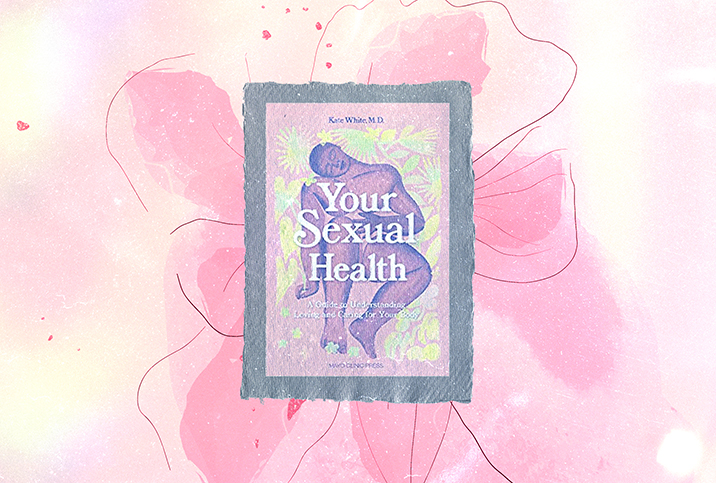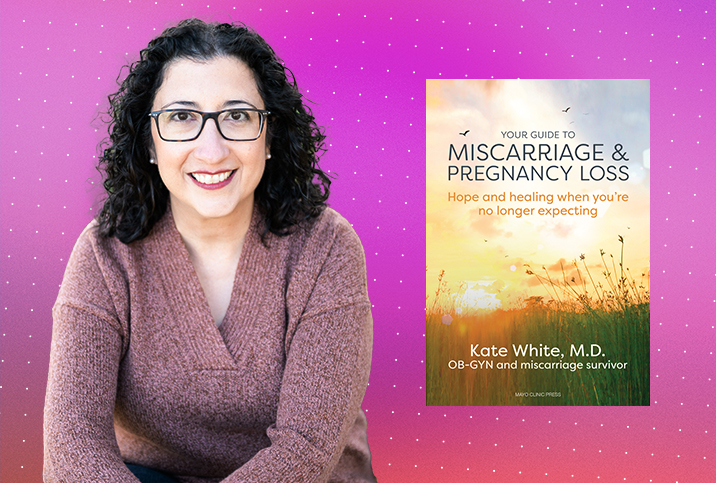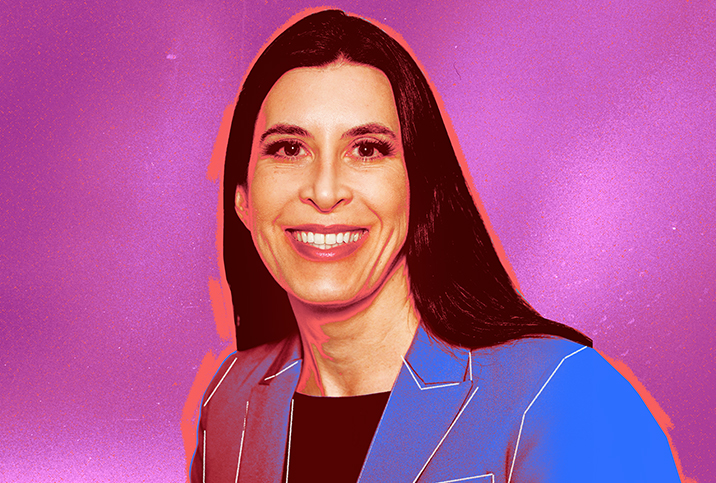Between the Pages: 'Your Sexual Health' Answers Your Burning Questions

"Growing up, my body below my waist was a mystery," writes Kate White, M.D., in the introduction to her book, "Your Sexual Health: A Guide to Understanding, Loving and Caring for Your Body" (Mayo Clinic Press, May 2022).
She's not alone.
Many people enter adulthood unequipped with even basic information about their bodies. It's no wonder, when sexual health education in the United States is woefully lacking. Only 39 states and the District of Columbia mandate sex education and/or HIV education in school, and only 17 states require the program content to be medically accurate, according to the Guttmacher Institute, a research and policy organization headquartered in New York City.
'It's vital that people understand how their reproductive health works and how to prevent a pregnancy they're not ready for.'
Additionally, 29 states require that abstinence be stressed and 4 states require only negative information to be provided on homosexuality and/or a positive emphasis on heterosexuality, which excludes vital information teens and young adults need to know about their bodies and choices regarding sexual activity.
White hopes her book can help empower people with the knowledge they need. She is a practicing gynecologist, the vice chair of academics and director of the Complex Family Planning Fellowship at Boston Medical Center, and an associate professor of OB-GYN at the Boston University School of Medicine.
In this exclusive interview, she tells us what our gynos want us to know about our bodies.
Tell us a bit about your latest book.
My book contains all the information that you need to know to keep yourself sexually healthy if you're a person with a vagina. It covers the most important topics—from your body to your periods to your birth control and, of course, sex—in easy-to-read nuggets. These are not the bits of info you'll find on PSAs or posters in your doctor's waiting room. This is real talk, from a doctor who knows what you really want to know.
I wrote the book because I had too many patients tell me they were embarrassed to ask questions about their own body; embarrassed to either say the words or describe the symptoms, or simply mortified that they didn't already know this information. But a lot of the things they ask about, I didn't learn until medical school! And you shouldn't have to become a doctor to be an expert in your own body. So I know how much confusion there is out there about our health. And since I can't change how sex education is given in school, I thought a guide from a gyno was the next best thing.
The book is geared towards folks in their 20s and 30s but may be enjoyed by people who are both younger and older. I certainly have 40-something-year-old patients who don't know all the things I cover in this book.
What's the best way for people to use your book?
This book is meant to be the answers to your questions, including the ones you didn't know you had. If you've got a burning question about your body, your birth control or your sex life, head right to that section. Browse through the book and enjoy the gorgeous watercolor illustrations [by artist Monica Ramos] and they may pull your interest into another section.
And at the end of each chapter, I've included two checklists. One is a self-checkup so you can see if you're doing all you can to keep yourself healthy and if your body is showing any worrisome signs. And the other is a list of questions to ask your doctor at your next visit. These [questions] can be really helpful if you're nervous about starting a convo with your gyno about an intimate subject.
What does 'Treat your vulva like the Hope diamond' mean?
Your vulva—also known as your inner and outer lips at the entrance to your vagina—has some of the most sensitive skin on your body. That's great for sex, but it does mean that you need to give it a little more TLC than you do the rest of your bod. Avoid any chemicals in the region—no perfumed sprays, douches and maybe even scented panty liners. When bathing, use just your fingers to clean yourself—no puffs or washcloths. If you struggle with a lot of discharge, use mild soap like Dove or Aveeno, and fragrance-free detergent.
What's the best way to 'Listen to your gut (and your uterus)'?
You know your body better than anyone else. If you feel like something is off with how your body looks or acts, head to the gyno before you head to the internet. Be as honest and detailed about your symptoms and your worries as you can be. If your doctor says there's nothing to worry about, ask them to explain what they're thinking, so you can make sure all your concerns have been heard. And if the explanation just doesn't sit right with you, it's OK to ask for testing or a second opinion, just to be sure.
How do you hope people feel after reading this book?
I want people to feel more at ease with themselves and have a better understanding of how their bodies work. I want people to know what normal periods are like and how to make theirs better. I hope people learn more about how to prevent pregnancy in the way that works best for them and learn how to get pregnant when the time is right. Finally, I want them to leave knowing how to have the best sex of their lives and how to get the respect and the foreplay they deserve from their partner!
What's your next project?
Right now, I'm doing a lot of writing about the recent Supreme Court decision that takes away the constitutional right to have an abortion. I feel like now more than ever, it's vital that people understand how their reproductive health works and how to prevent a pregnancy they're not ready for.


















